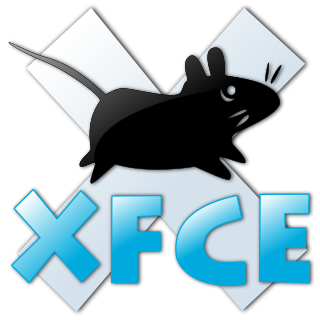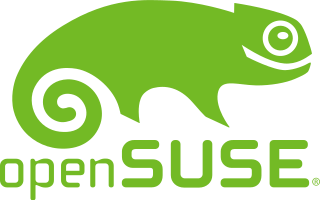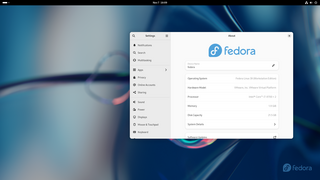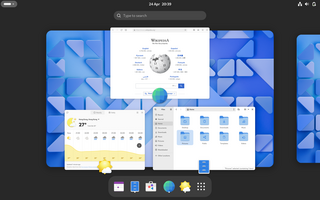
Palm OS was a mobile operating system initially developed by Palm, Inc., for personal digital assistants (PDAs) in 1996. Palm OS was designed for ease of use with a touchscreen-based graphical user interface. It is provided with a suite of basic applications for personal information management. Later versions of the OS have been extended to support smartphones. The software appeared on the company's line of Palm devices while several other licensees have manufactured devices powered by Palm OS.
In computing, a desktop environment (DE) is an implementation of the desktop metaphor made of a bundle of programs running on top of a computer operating system that share a common graphical user interface (GUI), sometimes described as a graphical shell. The desktop environment was seen mostly on personal computers until the rise of mobile computing. Desktop GUIs help the user to easily access and edit files, while they usually do not provide access to all of the features found in the underlying operating system. Instead, the traditional command-line interface (CLI) is still used when full control over the operating system is required.

Xfce or XFCE is a free and open-source desktop environment for Linux and other Unix-like operating systems.

The SWORD Project is the CrossWire Bible Society's free software project. Its purpose is to create cross-platform open-source tools—covered by the GNU General Public License—that allow programmers and Bible societies to write new Bible software more quickly and easily.

openSUSE is a free and open source Linux distribution developed by the openSUSE project. It is offered in two main variations: Tumbleweed, an upstream rolling release distribution, and Leap, a stable release distribution which is sourced from SUSE Linux Enterprise.

Maemo is a software platform originally developed by Nokia, now developed by the community, for smartphones and Internet tablets. The platform comprises both the Maemo operating system and SDK. Maemo played a key role in Nokia's strategy to compete with Apple and Android, and that strategy failed for complex, institutional and strategic reasons.

SUSE Linux Enterprise (SLE) is a Linux-based operating system developed by SUSE. It is available in two editions, suffixed with Server (SLES) for servers and mainframes, and Desktop (SLED) for workstations and desktop computers.

PulseAudio is a network-capable sound server program distributed via the freedesktop.org project. It runs mainly on Linux, including Windows Subsystem for Linux on Microsoft Windows and Termux on Android; various BSD distributions such as FreeBSD, OpenBSD, and macOS; as well as Illumos distributions and the Solaris operating system. It serves as a middleware in between applications and hardware and handles raw PCM audio streams.
Palm Desktop is a personal information manager computer program for Microsoft Windows or Mac OS/Mac OS X, and can be used alone or in combination with a Palm OS personal digital assistant.
A desktop environment is a collection of software designed to give functionality and a certain look and feel to an operating system.

Linux Mint is a community-driven Linux distribution based on Ubuntu, bundled with a variety of free and open-source applications. It can provide full out-of-the-box multimedia support for those who choose to include proprietary software such as multimedia codecs. Compared to Ubuntu, it uses the Cinnamon interface by default, using a different, more traditional layout that can be customized by dragging the applets and creating panels. New applets can also be downloaded.

Fedora Linux is a Linux distribution developed by the Fedora Project. It was originally developed in 2003 as a continuation of the Red Hat Linux project. It contains software distributed under various free and open-source licenses and aims to be on the leading edge of open-source technologies. It is now the upstream source for CentOS Stream and Red Hat Enterprise Linux.

Bharat Operating System Solutions is an Indian Linux distribution based on Debian, with Its latest stable version is 9.0 ("Urja") which was released in February 2021.

GNOME, originally an acronym for GNU Network Object Model Environment, is a free and open-source desktop environment for Linux and other Unix-like operating systems.
Fedora Linux is a popular Linux distribution developed by the Fedora Project. Fedora attempts to maintain a six-month release schedule, offering new versions in May and November, although some releases have experienced minor delays.
An app store, also called an app marketplace or app catalog, is a type of digital distribution platform for computer software called applications, often in a mobile context. Apps provide a specific set of functions which, by definition, do not include the running of the computer itself. Complex software designed for use on a personal computer, for example, may have a related app designed for use on a mobile device. Today apps are normally designed to run on a specific operating system—such as the contemporary iOS, macOS, Windows, Linux or Android—but in the past mobile carriers had their own portals for apps and related media content.

MATE is a desktop environment composed of free and open-source software that runs on Linux, BSD, and illumos operating systems.

Cinnamon is a free and open-source desktop environment for Linux and Unix-like operating systems, deriving from GNOME 3 but following traditional desktop metaphor conventions.

paldo is a Linux distribution. It was originally developed by Jürg Billeter and Raffaele Sandrini and released in 2004, mainly under the GNU GPL.
Besides the Linux distributions designed for general-purpose use on desktops and servers, distributions may be specialized for different purposes including computer architecture support, embedded systems, stability, security, localization to a specific region or language, targeting of specific user groups, support for real-time applications, or commitment to a given desktop environment. Furthermore, some distributions deliberately include only free software. As of 2015, over four hundred Linux distributions are actively developed, with about a dozen distributions being most popular for general-purpose use.













